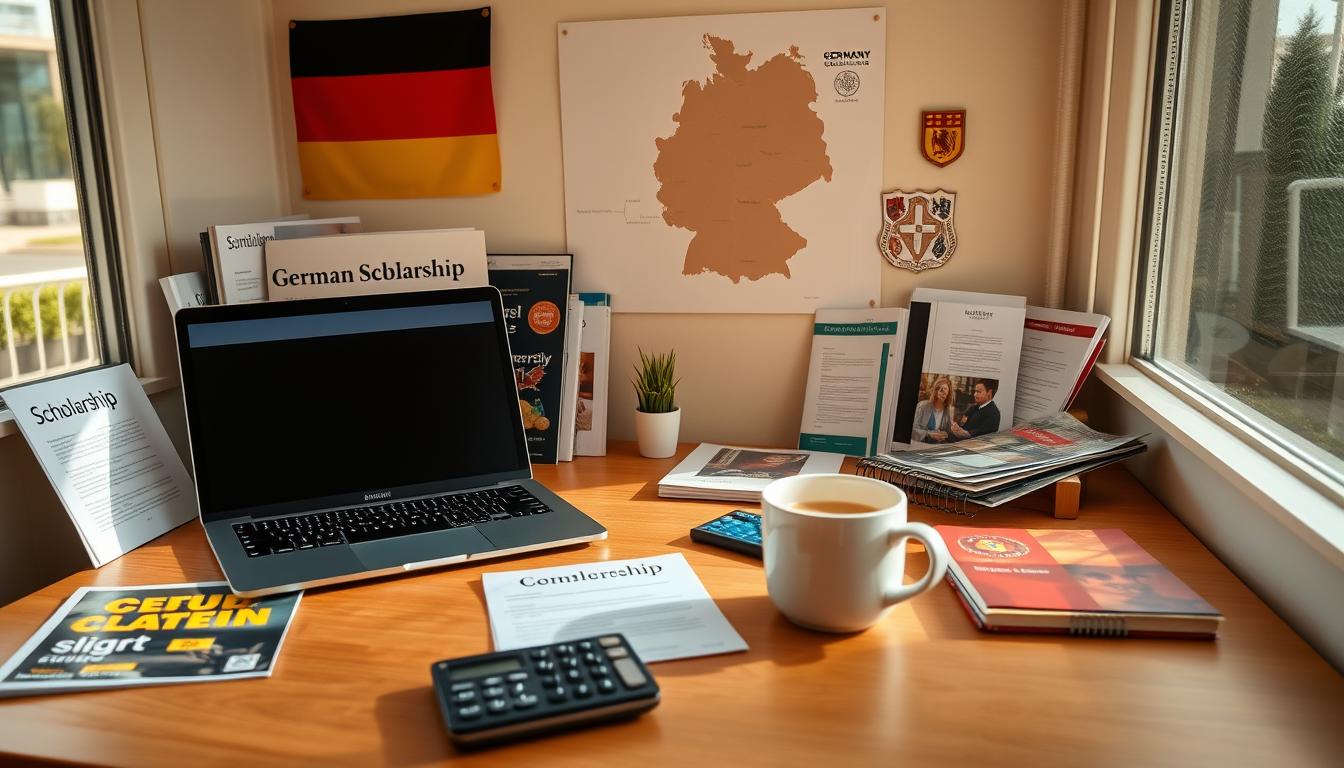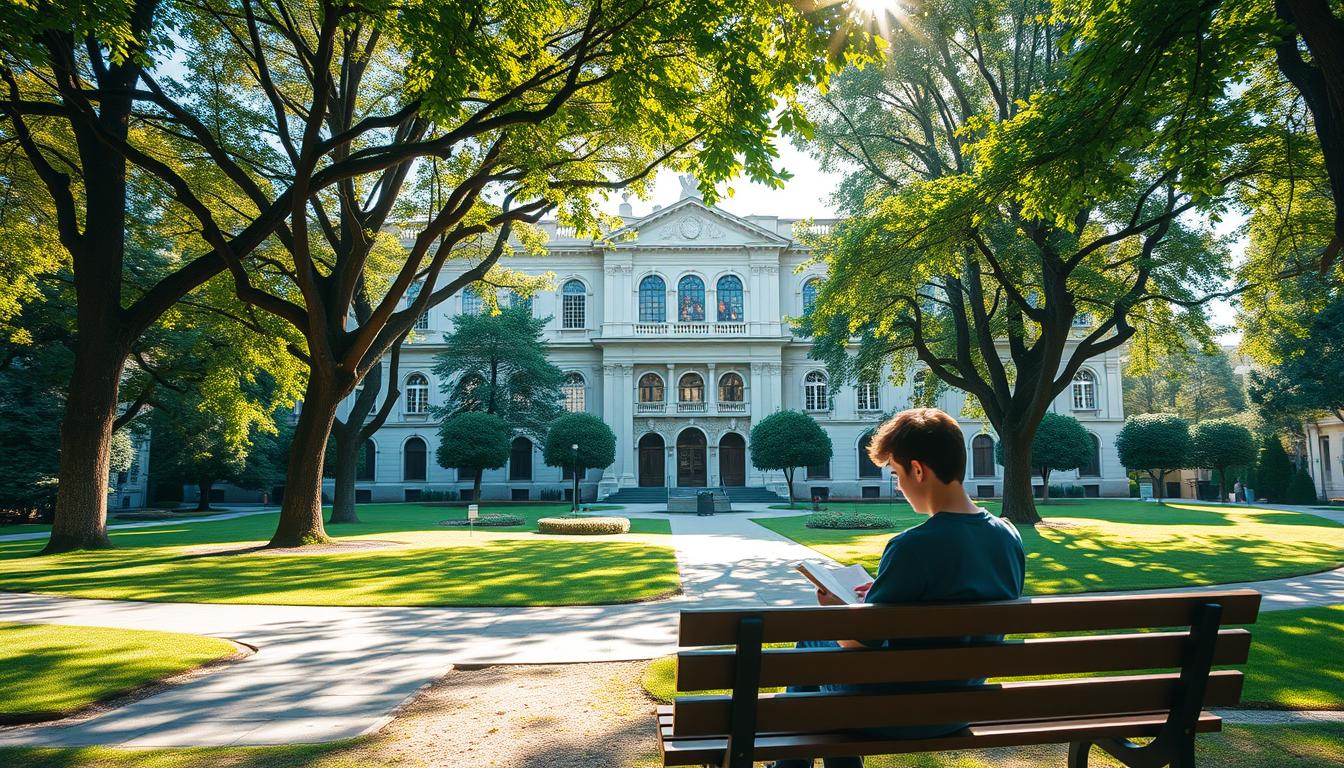Studying abroad offers incredible opportunities, and France stands out as a top choice for many international students.
With world-class universities and vibrant culture, it attracts learners from around the globe. However, tuition and living costs can be a challenge without financial support.
Anúncios
Public universities in France charge between €200 and €600 per year, while private institutions may cost up to €10,000. Living expenses average around €10,000 annually. For students from South Africa and other countries, grants and aid programs make higher education more accessible.
Several organizations offer funding, including universities, the government, and private institutions. Notable options include the Eiffel Excellence Scholarship and Sciences Po Grants. These programs help cover tuition, housing, and other expenses for master’s and PhD candidates.
This guide breaks down key details to simplify the application process. Whether pursuing a degree or research, financial assistance can turn study goals into reality.
For more information, explore the official scholarship website mentioned in this article:
You will be redirected to another website
Why Apply for French Scholarships?
Government-backed funding programs make France an attractive destination for global learners. Financial aid covers tuition, housing, and living costs, easing the burden for international students. Programs like the Eiffel Excellence Scholarship offer €1,181 monthly, while France Excellence Europa provides €6,850 for six months.
Beyond cost savings, these grants carry prestige. The French Ministry for Europe and Foreign Affairs funds top-tier initiatives, enhancing résumés and research prospects. Students gain access to France’s leading STEM and humanities programs.
| Program | Funding | Eligibility |
|---|---|---|
| Eiffel Excellence | €1,181/month | Master’s/PhD candidates |
| France Excellence Europa | €6,850/six months | EU and non-EU students |
These opportunities also serve as gateways to European careers. Recipients build networks with researchers and industries across the continent. For South African students, this means exposure to global job markets.
Types of French Scholarships Available
France’s academic landscape offers diverse funding options for students seeking financial support. Programs fall into two main categories: university-sponsored awards and state-backed initiatives. Each type has unique benefits tailored to different academic goals.
University-Funded Awards
Many institutions provide grants to attract top talent. These often cover partial tuition or living costs. For example, Sciences Po offers merit-based aid for international candidates.
Government-Funded Programs
The French Ministry for Europe and Foreign Affairs oversees prestigious initiatives. These target specific fields and regions, fostering global academic ties.
| Program | Funding Details | Strategic Focus |
|---|---|---|
| Eiffel Excellence | €1,181/month for 24 months | STEM, law, economics |
| France Excellence Europa | €6,850 for 6 months + €1,700 allowance | EU collaboration, humanities |
Key differences in eligibility:
- Eiffel Excellence: Open globally; prioritizes PhD candidates.
- France Excellence Europa: Favors EU residents; requires university partnerships.
“The ministry europe foreign prioritizes programs that strengthen France’s academic influence abroad.”
Both programs exemplify the excellence scholarship program model, combining financial support with professional networking.
Eligibility Criteria for French Scholarships
Eligibility rules vary across programs, with age and academic performance playing key roles. Most initiatives prioritize candidates who demonstrate excellence in their field while meeting administrative conditions.
Academic Requirements
Strong academic records are non-negotiable. Programs like the Ampère Scholarships require a minimum GPA of 3.5 or equivalent. Doctoral candidates often need published research or faculty recommendations.
Age and Nationality Restrictions
Many initiatives impose age limits or residency rules. For example:
- Ampère Scholarships: Applicants must be under 26 years old.
- ENS International Selection: Requires candidates to have spent fewer than 10 months in France.
- Emile Boutmy: Exclusively for non-EU students.
| Program | Age Limit | Residency Rule |
|---|---|---|
| Ampère Scholarships | ≤26 years | None |
| France Excellence Europa | ≤26 years | EU partnership required |
“French higher education programs target candidates who align with their strategic academic goals.”
Some awards also restrict applicants with prior degrees from local institutions. Always check individual program guidelines before applying.
Key Application Deadlines (2024-2025)
Key dates vary significantly depending on the institution and funding source. Missing a cutoff can disqualify even the strongest candidates. Strategic planning ensures all materials arrive on time.
- École Normale Supérieure: December 12, 2024
- French Government Scholarships: January 8, 2025
- ENS de Lyon: January 31, 2025
- Université Paris-Saclay: May 12, 2025
Embassy-nominated awards often close earlier. South African applicants should confirm local embassy timelines. Some schools use rolling admissions, but priority goes to early submissions.
For a degree program starting in fall 2025, begin applications 6–12 months prior. First- and second-year intake cycles may differ. Always verify dates on official portals.
“French government scholarships require strict adherence to deadlines. Late applications are rarely reconsidered.”
Multi-stage processes need extra time for interviews or document revisions. Sync calendars with academic and financial aid timelines to avoid conflicts.
Tips to Secure a French Scholarship
Standing out in a competitive pool requires strategic planning and attention to detail. Many applicants miss opportunities due to overlooked errors or generic submissions. Follow these steps to strengthen your application.
Document Preparation
Organize all required materials early. Missing documents can disqualify even the strongest candidates. Key items often include:
- Transcripts with official translations (if applicable).
- Proof of language proficiency (e.g., DELF B2 for French-taught programs).
- Letters of recommendation from professors or employers.
Programs like Erasmus Mundus may require 500-word essays on assigned topics. Tailor responses to your study field, highlighting relevant skills.
Writing a Standout Motivational Letter
This letter is your chance to showcase passion and alignment with the program’s goals. Successful examples often include:
- Academic goals: Link past achievements to future research plans.
- Cultural alignment: Explain why France fits your aspirations.
- Post-study plans: Demonstrate how you’ll apply the knowledge.
“A well-structured motivational letter reflects clarity of purpose—committees look for candidates who articulate their vision convincingly.”
Avoid generic statements. For instance, HealthTech Fellowship applicants should focus on healthcare innovation. Proofread meticulously; typos suggest carelessness.
By refining these elements, students can significantly improve their odds in any scholarship program.
Conclusion
Pursuing higher education abroad opens doors to global opportunities. France’s blend of academic excellence and cultural richness makes it a top choice for international students, especially those from South Africa.
Before applying, verify deadlines, authenticate documents, and confirm eligibility. Cast a wide net—apply to multiple funding sources to increase success odds.
For extra support, contact Campus France offices or local embassies. These resources streamline the process, turning study abroad aspirations into reality.
FAQ
What types of financial aid are available for international students in France?
Students can apply for university-funded grants, government-funded programs like the Eiffel Excellence Scholarship, and regional aid. Some institutions also offer tuition waivers.
Are there age limits for applicants?
Most programs require candidates to be under 30 for master’s degrees and under 35 for PhDs. Exceptions exist for specific research grants.
How competitive are these opportunities?
Highly sought-after awards like the France Excellence Europa receive thousands of applications yearly. Strong academic records and compelling essays improve chances.
Can non-EU students qualify for full tuition coverage?
Yes, select merit-based awards from the Ministry of Europe and Foreign Affairs cover tuition plus living expenses for outstanding candidates.
When should applications be submitted?
Deadlines vary by program but typically fall between January-March for the following academic year. Early preparation is crucial.
Do applicants need French language proficiency?
While some STEM courses are taught in English, most humanities programs require B2/C1 certification. Check individual program requirements.
What documents are mandatory for applications?
Standard materials include transcripts, recommendation letters, a CV, and a motivation letter. Some may require research proposals for doctoral candidates.
Can recipients work while studying?
International students with valid residency permits can work up to 964 hours annually without needing separate authorization.






